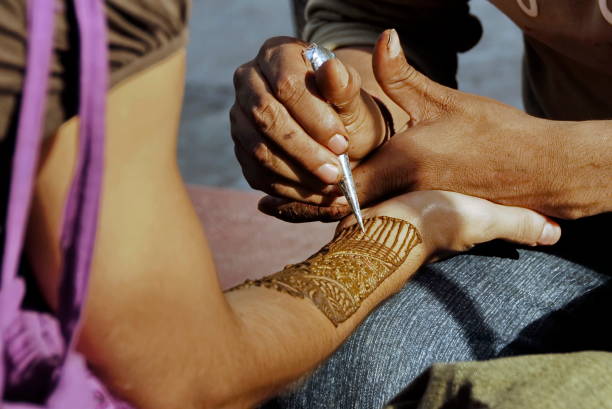Tattoo artists are unique individuals who express their creativity and passion through the art of tattooing. Often, they are not just tattooists but also skilled artists with a deep understanding of aesthetics, design principles, and human anatomy. Their work goes beyond merely injecting ink into the skin; it involves creating a piece of art that is both personal and meaningful to the person wearing it.
The artistic identity of a tattoo artist is shaped by various factors such as their style, technique, influences, and philosophy towards their craft. It’s like an invisible signature that sets them apart from others in the field. Some may specialize in traditional styles like Japanese Irezumi or American Traditional while others might be known for more modern approaches such as realism or geometric designs.
Tattoo artists spend countless hours honing their skills and developing their own distinctive style. They draw inspiration from various sources including other forms of art, culture, nature, personal experiences among others. This constant exploration and experimentation help them evolve as artists and refine their artistic identity over time.
Moreover, each a reputable tattoo artist unique approach towards their craft which reflects in their work. Some view tattoos as a form of self-expression allowing individuals to tell their story or commemorate significant life events on their skin. Others see it as an opportunity to challenge societal norms around beauty and body image by transforming the human body into a living canvas for art.
In addition to technical skills like drawing or shading techniques, successful tattoo artists also need strong interpersonal skills since they work closely with clients throughout the process – right from consultation where they discuss design ideas to actual tattooing session where they bring those ideas to life on skin.
Over recent years there has been growing recognition for tattoos as legitimate form of art thanks largely to talented tattoo artists pushing boundaries with innovative designs & techniques along with TV shows like Ink Master highlighting craftsmanship involved in this ancient practice.
However despite increasing acceptance there are still challenges faced by many professional tattooists. They often have to deal with stereotypes or misconceptions about their profession, struggle for recognition in mainstream art world and face health risks associated with tattooing.
Regardless of these challenges, tattoo artists continue to create remarkable works of art on skin every day. Their artistic identity is a reflection of their journey, passion and dedication towards this unique form of expression. It’s not just about making a living but also about leaving an indelible mark on people’s lives through their art.
In conclusion, the artistic identity of a tattoo artist is shaped by various factors including their style, influences, philosophy towards their craft and experiences. It’s what sets them apart from others in the field and helps them create tattoos that are not just aesthetically pleasing but also meaningful and personal to those who wear them.





